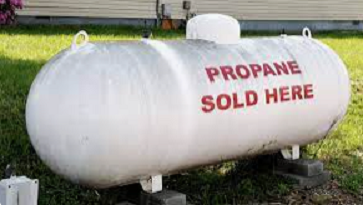at 612-315-3037 or
www.swansonhatch.com

Approximately ten percent of Minnesota residents use propane to heat their homes, more than twice the national average. Propane tanks can be large, up to 250 gallons or more—and expensive to fill.
One company, Ferrell Gas, used contracts stating in the fine print that it charged customers “our current market price.” Consumers understood this to mean that the propane company charged prevailing market prices for its propane. In fact, the company often charged prices significantly higher than prevailing market prices. And they added on other fees—like “low use” fees—to charge people when they tried to conserve on energy costs.
Ambrose, a 72-year-old retiree from northern Minnesota, met with Attorney General Swanson and told the media he was so upset that he took his tractor, pulled the Ferrell fuel tank out of the ground, hauled it to the Ferrell office, and dumped it on the lawn. At the time Ferrell was charging $4.39 per gallon for propane, much higher than the prevailing market rates.
Dean also lived in northern Minnesota. His son saw the Ferrell bill pasted on his refrigerator and told the father that the Ferrell rates were double the market rate. He contacted Ferrell, who said there must be a mistake and adjusted the bill. The next time Dean got a fill, the bill came and once again it was much higher than the prevailing market rate. Once again, he called Ferrell to get a rate adjustment.
Then it happened again. Dean told Ferrell to get its tank out of his yard. Then, as a member of his Lutheran church board, Dean discovered that Ferrell was charging the church more than market rates too. The church switched propane suppliers.
Swanson’s office and Ferrell engaged in a series of tough settlement negotiations when, in the midst of it, Ferrell tried to file a preemptive strike on October 7, 2009 and sued the Attorney General for a declaratory judgment that it did not violate the law. Within a few days, Swanson counter-sued Ferrell alleging that it had violated the State’s consumer protection laws by charging consumers undisclosed or poorly disclosed fees and charging costs per gallon that were sometimes significantly higher than market prices.
The lawsuit was heavily litigated. The parties went through numerous motion hearings and dozens of consumer affidavits were obtained. In August of 2011, Ferrell and Swanson reached a settlement. Ferrell agreed to be more transparent in the charges it imposed for fuel and to stop imposing fees for no use and low use. It also agreed to establish a restitution fund to make refunds to consumers.
References: